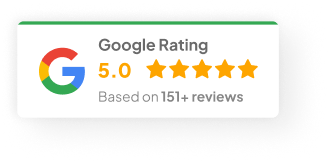08 Jul 25
5 Reasons to Hire a Web Development Business (and Why It is Better than DIY Websites)
These days, a website isn’t just a “nice to have.” It’s your storefront, your pitch deck, and in many cases, the make-or-break moment for a customer.
And yes, those DIY site builders can look appealing. They promise quick wins, flashy templates, and drag-and-drop freedom. But in practice? They often fall short of what a serious business actually needs.
Here’s a closer look at why working with a professional web development business is often the better move—and why going DIY could hold your business back.
So, What Does a Web Development Business Actually Do?
It’s more than just slapping a few pages together. A proper web development company brings together devs, designers, SEO nerds, and user experience folks—all working together to build a site that doesn’t just look good, but actually works.
That means:
- Understanding the business first
- Crafting a tailored plan (not just picking a template)
- Writing clean, efficient code
- Testing it across all devices and browsers
- Optimising for conversions and visibility
Every pixel, every line of code—it’s built with a purpose.
Why Hire a Web Development Business
1) Deep Industry Experience (That You Can’t Fake)
Web trends change fast. Algorithms get updated. User habits evolve. A DIY platform won’t tell you that the banner you’re using is dragging your load speed—or that your site structure confuses Google.
An experienced team knows the game. They’ve seen what works and what tanks. That insight can mean the difference between a site that gets buried and one that drives consistent leads.
2) Your Brand Deserves More Than a Template
Cookie-cutter layouts might be fine for hobby sites. But a serious business? Needs something more intentional.
A web dev business:
- Builds layouts that fit your messaging
- Customises visual elements to match brand tone
- Makes sure design supports function (not just aesthetics)
The result feels on-brand. It flows naturally. And it actually converts.
3) SEO and Speed Built In (Not Bolted On Later)
Search engines care about things like code quality, load speed, and structure. DIY platforms? Not always great at these.
Professionally built sites tend to come with:
- Proper heading structure
- Compressed images and lightweight code
- Clean metadata setups
- Caching and CDN configuration
All the behind-the-scenes work that makes Google happy—and keeps users from bouncing.
4) Fully Responsive Across All Devices
Everyone’s on mobile these days. Or tablets. Or switching between both. And responsive design isn’t just resizing things.
It’s about:
- Prioritising content hierarchy by device
- Ensuring tap targets and menus work well on thumbs
- Avoiding layout shifts and visual glitches
This level of attention takes time—and it’s often where DIY sites fall apart.
5) Scalability and Long-Term Support
Websites aren’t set-and-forget. As a business grows, the site needs to grow with it.
That includes:
- Adding new pages or features
- Troubleshooting bugs as browsers update
- Keeping plugins, security, and backups current
With a dev team, there’s someone to call. No panic Googling or hoping that one YouTube tutorial will fix your broken homepage.
So What’s the Deal With DIY Websites?
Platforms like Wix, Squarespace, and some WordPress setups are made to be simple. Great for a weekend project or a personal blog. But for a business?
You’re juggling:
- Design
- Development
- Copywriting
- SEO
- Security
- UX
That’s six hats—and they all matter. Without deep knowledge, it’s easy to misstep.
The Cost of DIY Mistakes
And those missteps? They cost.
According to a Top Design Firms survey, more than 25% of small businesses report dissatisfaction with their DIY websites. This is due to performance issues, lack of functionality, or poor design.
Here’s what it includes:
- Sites that look fine on desktop but break on mobile
- Unsecured forms or outdated code that invites trouble
- Poor load times from bloated templates
- Incorrect SEO settings that stop ranking cold
- Branding that feels generic or inconsistent
These issues don’t come from laziness. They come from a lack of experience which is totally understandable. But it’s why pro help makes a difference.
Choosing the Right Web Development Team
It’s not just about picking a company that’s “been around.” It’s about finding one that knows how to build for performance, communicates well, and sticks around post-launch.
Things to check for:
- Portfolio variety: Have they built sites in your industry?
- Real results: Testimonials, referrals, and outcomes
- Process transparency: Timelines, revision policies, post-launch support
- Ongoing maintenance: Not just delivery and disappear
Working with a good dev team shouldn’t feel like a transaction—it should feel like a partnership.
Why Choose Chromatix?
Since we are in the talk of web development, why not hire the best in the industry.
Chromatix have been in this space for decades, working with Aussie businesses across all kinds of industries.
Thousands of websites later, we’ve seen what works—and what just looks good on the surface. Everything we build is geared for performance, trust, and usability.
If the goal is to avoid mistakes, save time, and build something that’s ready to grow with your business, you’re in the right place.
Ready to build a site that actually pulls its weight? Give us a call now.


